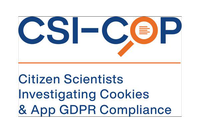Tilburg University
Tilburg University is a specialist university in the south of The Netherlands, with prominent schools of Law and Economics. In 2019 the Tilburg Institute for Law, Technology, and Society (TILT) merged with TILEC to form the department of Law, Technology, Markets, and Society (LTMS) as a part of Tilburg Law School. With over 50 researchers, Tilburg Institute for Law, Technology, and Society (TILT; www.uvt.nl/tilt), now LTMS, is one of the leading European research institutes in the area of technology regulation. Key research areas of expertise are privacy and data protection, intellectual property, cyber security and cybercrime, eHealth. TILT’s expertise covers a wide array of domains (e-government, e-commerce, e-health, cybersecurity), technologies (bio-, nano, neuro- technologies, robotics), and topics (privacy, identity management, cybercrime, intellectual- property rights, etc.). LTMS’ research programme is premised on the notion of a mutual shaping of technology, regulation, and normative outlooks. In the most recent five-year research assessment, TILT received 4.75 out of 5, ranking second (with seven others) out of 60 Dutch research programmes. Tilburg Law School was assessed the best Dutch law faculty, averaging 4.47 out of 5. LTMS’ research is mainly performed within large international (EU-funded) and national projects (publiclyprivately funded or funded by the Netherlands Organisation for Scientific Research – NWO). TILT’s input in these projects is guided by an overarching five-year research programme. The overall aim of this programme is to gain a deeper understanding of the complex ways in which technology, regulation, and normative outlooks interact and shape each other. We investigate the ways in which technological developments affect regulation, basic societal patterns and normative frameworks and vice versa. LTMS’ team of researchers is composed of scholars from various disciplines, such as law, social sciences, ethics, philosophy, and computer science, coming from many nationalities (currently from over 19 countries). It has a mix of highly qualified seniors, experienced junior researchers, as well as young PhD students.
